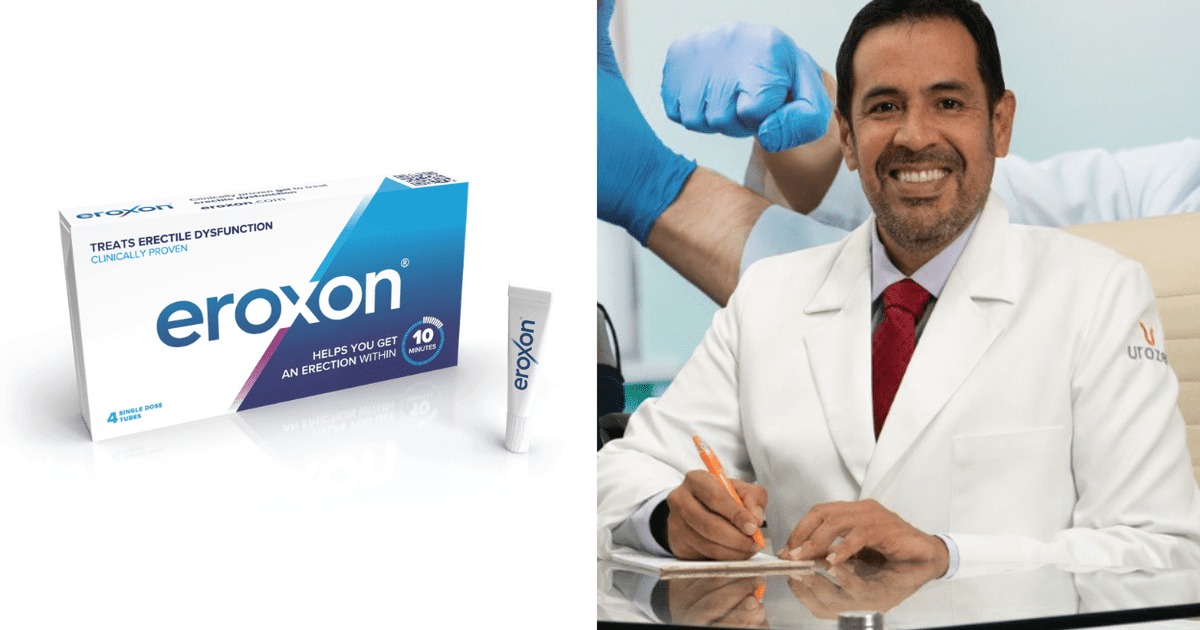Introduction to Hormone Replacement Therapy (HRT)
Hormone Replacement Therapy (HRT) is a medical treatment primarily designed to alleviate symptoms associated with hormonal imbalances or deficiencies. It involves the administration of hormones to supplement or replace the body’s natural hormone levels. HRT is most commonly used to address the symptoms of menopause in women, such as hot flashes, night sweats, and mood swings. Additionally, it is employed in treating low testosterone levels in men, which can lead to fatigue, depression, and decreased libido. Moreover, HRT plays a crucial role in aiding transgender individuals during their gender transition, helping them align their physical characteristics with their gender identity.
The common hormones utilized in HRT include estrogen, progesterone, and testosterone. Estrogen and progesterone are primarily used in women to mitigate menopausal symptoms and prevent conditions like osteoporosis. Testosterone replacement therapy is commonly prescribed for men experiencing hypogonadism, a condition characterized by low testosterone levels. In the context of transgender healthcare, estrogen and anti-androgens are typically used for male-to-female transitions, while testosterone is used for female-to-male transitions.
HRT has a storied history, with its roots tracing back to the early 20th century. Initially, hormone therapy was limited in scope and often relied on crude extracts from animal glands. The discovery of synthetic hormones in the mid-20th century marked a significant advancement, making HRT more accessible and effective. Over the years, extensive research has led to the development of more refined and personalized HRT protocols, enhancing both safety and efficacy. Despite past controversies and evolving guidelines, hormone replacement therapy remains a vital tool in modern medicine, offering significant benefits to those experiencing hormonal imbalances or seeking gender-affirming care.
Recent Advancements in HRT

Recent years have seen significant advancements in hormone replacement therapy, driven by ongoing research and technological innovations. One of the most notable breakthroughs is the development of bioidentical hormones, which are chemically identical to those the human body naturally produces. These hormones are designed to provide a more natural and effective treatment by closely mimicking the body’s own hormones, thereby potentially reducing side effects and improving patient outcomes.
Another significant advancement in hormone replacement therapy is the introduction of new delivery systems. Traditional oral medications are now being complemented by transdermal patches, gels, and even subcutaneous implants. These novel delivery methods offer several advantages, such as more consistent hormone levels in the bloodstream, reduced risk of liver metabolism issues, and increased convenience for patients. For instance, hormone patches and gels provide a steady release of hormones, which can help to avoid the peaks and troughs often associated with oral medications.
The field of personalized medicine has begun to influence hormone replacement therapy as well. Personalized medicine approaches involve tailoring treatments based on an individual’s genetic makeup, lifestyle, and specific health needs. This customization can lead to more precise dosing and targeted treatments, thereby enhancing the efficacy and safety of HRT for each patient. Genetic testing, for instance, can identify how a person metabolizes hormones, allowing healthcare providers to adjust dosages more accurately.
New medications and treatments are continually being developed, offering additional options for those undergoing hormone replacement therapy. For example, recent studies have highlighted the potential of selective estrogen receptor modulators (SERMs) and tissue-selective estrogen complexes (TSECs) in providing the benefits of estrogen with fewer risks. These new treatments aim to deliver the therapeutic effects of hormone replacement while minimizing adverse effects, such as increased risk of certain cancers and cardiovascular issues.
Overall, the advancements in hormone replacement therapy are paving the way for more effective, safer, and personalized treatments. These innovations hold promise for improving the quality of life for individuals undergoing HRT, making it a more viable option for managing hormonal imbalances and related conditions.
Health Benefits of HRT
Hormone Replacement Therapy (HRT) offers several significant health benefits across various groups, including menopausal women, men with low testosterone levels, and transgender individuals. For menopausal women, HRT can alleviate symptoms such as hot flashes, night sweats, and vaginal dryness. Recent studies have shown that HRT can also reduce the risk of osteoporosis by maintaining bone density, thus lowering the incidence of fractures. For example, a 2021 study published in the Journal of Clinical Endocrinology & Metabolism found that women undergoing HRT had a 30% lower risk of hip fractures compared to those who did not receive the therapy.
In men with low testosterone, HRT can improve energy levels, mood, and sexual function. Low testosterone, often referred to as hypogonadism, can lead to fatigue, depression, and decreased libido. A comprehensive review in the Journal of the American Medical Association highlighted that testosterone replacement therapy could significantly enhance the quality of life in men by alleviating these symptoms. Furthermore, the therapy has been linked to improved muscle mass and strength, which is particularly beneficial for older men experiencing age-related muscle loss.
For transgender individuals, HRT is a critical component of gender-affirming care. It helps align their physical characteristics with their gender identity, significantly improving mental health outcomes. A 2020 study in the Journal of Sexual Medicine reported that transgender individuals undergoing HRT had lower levels of anxiety and depression compared to those who did not receive the therapy. Additionally, the therapy contributes to better social functioning and overall quality of life.
The benefits of HRT are well-documented and supported by recent research, emphasizing its role in enhancing both physical and mental health across different populations. By addressing specific hormonal deficiencies and imbalances, HRT provides a pathway to improved well-being and quality of life for many individuals.
Risks and Considerations of HRT
Hormone replacement therapy (HRT) has been a pivotal intervention for managing symptoms associated with hormonal imbalances, particularly in menopausal women. However, it is crucial to weigh the potential risks and side effects alongside the benefits. Recent studies have illuminated various considerations that should be taken into account before commencing HRT.
One of the primary concerns associated with hormone replacement therapy is the increased risk of certain types of cancer. For instance, prolonged use of HRT has been linked to a heightened risk of breast cancer, particularly when estrogen and progesterone are used together. Similarly, women with a history of endometrial cancer or those with a predisposition to such cancers should exercise caution.
Cardiovascular issues also present significant risks for individuals considering HRT. Research indicates that hormone replacement therapy can elevate the risk of stroke and heart disease, especially in older women or those who begin HRT later in life. This makes it imperative for individuals with pre-existing cardiovascular conditions to consult their healthcare providers before starting HRT.
On the other hand, HRT is not without its benefits. It can considerably alleviate menopausal symptoms such as hot flashes, night sweats, and vaginal dryness, thereby improving the quality of life for many women. Additionally, HRT has been shown to protect against osteoporosis by maintaining bone density, reducing the risk of fractures.
Given these mixed outcomes, personalized medical advice is paramount. Healthcare providers can evaluate individual risk factors, such as age, family history, and existing medical conditions, to determine the suitability and safest approach for HRT. Recent guidelines emphasize a tailored strategy, recommending the lowest effective dose for the shortest duration necessary to achieve the desired benefits.
In summary, while hormone replacement therapy offers significant advantages for managing menopausal symptoms and preventing osteoporosis, it is accompanied by potential risks, particularly concerning cancer and cardiovascular health. A thorough evaluation and personalized medical consultation are essential to navigate these complexities effectively.
Patient Experiences with HRT

Hormone replacement therapy (HRT) has been a transformative journey for many individuals, offering relief and improved quality of life. Jane, a 52-year-old woman, shares her positive experience: “Before starting HRT, I struggled with severe hot flashes and mood swings. Within weeks of beginning treatment, my symptoms significantly decreased, allowing me to enjoy daily activities without constant discomfort.”
Similarly, Robert, a 47-year-old male undergoing testosterone replacement therapy, recounts: “I had been dealing with fatigue and low energy levels for years. After starting HRT, I felt more energetic and my overall mood improved. It was like regaining a part of my life I had lost.”
However, not all experiences are without challenges. Maria, a 49-year-old woman, notes: “While HRT helped alleviate my menopausal symptoms, I initially experienced side effects like headaches and nausea. My doctor adjusted the dosage, and eventually, the benefits outweighed the drawbacks.”
These narratives underscore the importance of personalized treatment plans and ongoing medical supervision. Dr. Emily Harris, an endocrinologist, emphasizes: “HRT is not a one-size-fits-all solution. It requires careful monitoring and adjustments to meet individual needs. Patient feedback is crucial in tailoring the therapy effectively.”
Despite some challenges, many patients find HRT to be a valuable tool in managing their symptoms. John, a 60-year-old man, describes his journey: “My overall health has improved with HRT. The key was working closely with my healthcare provider to find the right balance.”
These real-life examples highlight the diverse experiences with hormone replacement therapy, offering a comprehensive view of its potential benefits and challenges. For many, HRT is a journey towards regaining control over their health and well-being, emphasizing the need for individualized care and open communication with healthcare professionals.
Future Directions in HRT

The future of hormone replacement therapy (HRT) is poised to undergo significant transformations as ongoing research and emerging trends continue to shape the field. One of the most promising areas of development lies in the realm of genetic research. With the advent of genomic technologies, personalized treatments are becoming increasingly feasible. By understanding individual genetic variations, healthcare providers could tailor hormone replacement therapy to each patient’s unique genetic profile, potentially enhancing efficacy and minimizing adverse effects.
Current studies are also exploring the integration of novel biomarkers to better predict responses to hormone replacement therapy. This approach aims to refine treatment protocols, ensuring patients receive the most suitable hormone combinations and dosages. Additionally, advancements in bioinformatics and machine learning are being leveraged to analyze vast datasets, leading to more precise and predictive models for HRT outcomes.
On the technological front, innovations such as transdermal patches, bioidentical hormones, and sustained-release formulations are gaining traction. These advancements aim to provide more consistent hormone levels, reducing the risk of side effects associated with traditional administration methods. Furthermore, the development of non-hormonal alternatives is also underway, offering potential benefits to individuals who may not be ideal candidates for conventional hormone replacement therapy.
Emerging therapies such as selective estrogen receptor modulators (SERMs) and tissue-selective estrogen complexes (TSECs) are being investigated for their ability to provide the benefits of estrogen without the associated risks. These therapies could revolutionize the management of menopausal symptoms and other hormonal imbalances, offering safer and more effective options for patients.
The future of hormone replacement therapy holds immense potential, with ongoing research and technological advancements paving the way for more personalized, safe, and effective treatments. As our understanding of the underlying mechanisms of hormonal regulation deepens, the landscape of HRT is set to evolve, bringing new hope and improved quality of life for individuals seeking hormonal balance.
Conclusion
In conclusion, the landscape of hormone replacement therapy has seen significant advancements, offering new possibilities for those seeking relief from hormonal imbalances. Recent findings highlight the enhanced efficacy and safety profiles of modern HRT formulations, providing tailored treatment options that are increasingly personalized to individual patient needs. These developments have made hormone replacement therapy a viable option for many, with the potential to improve quality of life substantially.
Despite the promising benefits, it is crucial to remain aware of the associated risks. As with any medical treatment, the advantages of HRT must be weighed against potential side effects, which can vary based on the individual’s health status and medical history. Current research continues to shed light on these risk factors, fostering a more comprehensive understanding that aids in making informed decisions.
Given the complexities involved, it is essential for individuals to consult with healthcare providers to determine the appropriateness of hormone replacement therapy for their specific circumstances. Personalized medical advice ensures that each patient’s treatment plan is optimized, aligning with their unique health needs and goals.
Staying informed about the latest advancements in hormone replacement therapy and other medical treatments is vital. As the field evolves, ongoing research and clinical trials will likely bring further innovations and insights, enhancing the therapeutic landscape. By keeping abreast of these developments, patients and healthcare providers can collaboratively navigate the intricacies of HRT, ensuring the best outcomes.



